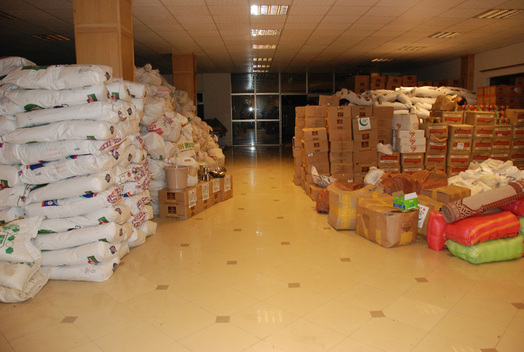
About 2,000 people were killed and more than 30 million affected in the worst floods in the country’s history. The flooding disaster added to the existing economic and social hardships Pakistan had been going through.
The situation in Pakistan remains serious. Certain flooded regions are still cut off. Disease epidemics are gradually spreading. Children are struggling to survive hunger in the country that has tied its hope to external aid.
The IHH Humanitarian Relief Foundation is carrying on with delivering donations of charitable Turkish people to Pakistan, where heavy monsoon rains trigged massive floods that inundated one fifth of the country. Aid teams of the IHH distributed 147 tons of supplies in a week. The IHH Emergency Aid Team delivered aid to 47,000 flood victims in Punjab and Khyber Pakhtunkhwa provinces. The teams accessed areas that remain cut off by flood waters by helicopters and boats.
Daily hot food delivery to 5,000
Flood waters have not receded yet, but diseases epidemics have already broken out. Especially children are at serious risk. Pakistanis are having hard time accessing food and clean drinking water. This is causing rapid spread of epidemics. The IHH divided its health team in the region into two groups. The first group is centered in Muzaffargarh, Punjab and is providing health services with ambulances. The group is examining daily 400 people on average. Diarrhea is the most frequently encountered disease. The second group is providing services in various parts of Punjab.